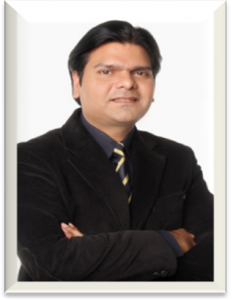Each week Emerging Markets ESG publishes an interview entitled, “Five Questions about SRI.” The interview features a practitioner’s insights about SRI in emerging markets and through Emerging Markets ESG shares this expertise with a wide global audience. The goals of Five Questions about SRI are fourfold:
- To reflect on what SRI in emerging markets means to practitioners;
- To collect a catalogue of examples of SRI in practice in emerging markets;
- To raise awareness about SRI in emerging markets; and
- To enable SRI practitioners in emerging markets to network with peers around the world.
This week’s interview is with Amol Titus, CEO, IndonesiaWISE.
Amol Titus is CEO of IndonesiaWISE, a strategic consultancy and advisory services firm covering Asian emerging markets. Driven by the proven framework of fundamentals it pioneered, Winning-Innovation-Sustainability-Excellence™, IndonesiaWISE provides a consulting platform built on emerging markets expertise, strategic advisory, thought leadership and transformational management development programs. These services are provided in a cost-effective manner focusing on practical insights and creative delivery. Since 2010 IndonesiaWISE is co-lead in the Emerging Markets Disclosure Project (EMDP) along with UN Principles for Responsible Investment (PRI) and a group of international and local institutions. This project is seeking to assess practices and disclosure related to environment, social and governance (ESG) indicators. Amol Titus is a well-known emerging markets professional, teacher, writer and columnist. Prior to establishing IndonesiaWISE in 2008 he worked in senior roles in the international financial sector for over 18 years.
Emerging Markets ESG: How would you define socially responsible investment (SRI)?
 Amol Titus: Socially Responsible Investment (SRI) means giving due weight to ESG factors in investment policies, due diligence and decisions. Rather than just box-ticking, SRI focused investments must demonstrate that they are differentiating companies based on ESG criteria.
Amol Titus: Socially Responsible Investment (SRI) means giving due weight to ESG factors in investment policies, due diligence and decisions. Rather than just box-ticking, SRI focused investments must demonstrate that they are differentiating companies based on ESG criteria.
Emerging Markets ESG: What distinguishes SRI from mainstream investment?
Amol Titus: Mainstream investment focuses primarily on financial parameters. When emerging market stock indices such as IDX in Indonesia are on the upswing, this can result in both responsible as well as irresponsible company stocks rising in tandem. SRI investments that are based on credible ESG criteria can help support responsible companies better and send an important signal that good conduct is being noticed and incentivized through investment.
Emerging Markets ESG: Which extra-financial theme – environmental, social or governance – is the most challenging for companies in Indonesia to manage?
Amol Titus: All three are critical in Indonesia. On environment, companies need to clearly communicate their environmental policies and specific progress on waste & pollution management, water recycling and compliance with industry sustainability standards. On social, there is scope to improve anti-discrimination policies and fair employment practices. On governance, financial transparency and board independence are critical areas of improvement.
Emerging Markets ESG: Which extra-financial theme – environmental, social or governance – is the most challenging for investors in Indonesia to analyze?
Amol Titus: Historically the Indonesian corporate sector has been dominated by conglomerate type structures and this model continues until today. In this business environment, an industrial group promoted by a tycoon can have various disparate businesses such as agribusiness, automotive, banking, consumer goods, telecom, etc. If only one subsidiary is listed, it becomes difficult to assess internal financial controls and the degree of independence the professionals have in relation to the promoter. Governance standards, including those at state owned enterprises being privatized, will need to be improved further for IDX to be a long term value play.
Emerging Markets ESG: What drives ESG reporting in Indonesia and which SRI opportunities currently exist in Indonesia?
Amol Titus: There are positive trends in ESG reporting with greater awareness that serious investors are no longer content with financial criteria only. Regulations are being tightened and projects like the Emerging Markets Disclosure Project (EMDP) are making companies aware of good practices in other peer group emerging countries. There is a SRI index called SRI-Kehati but its transparency and information mechanisms need to be strengthened. Investors can also invest directly into some attractive blue chips that are highlighting sustainability indicators through disclosure. IndonesiaWISE provides ESG due diligence services to interested investors.